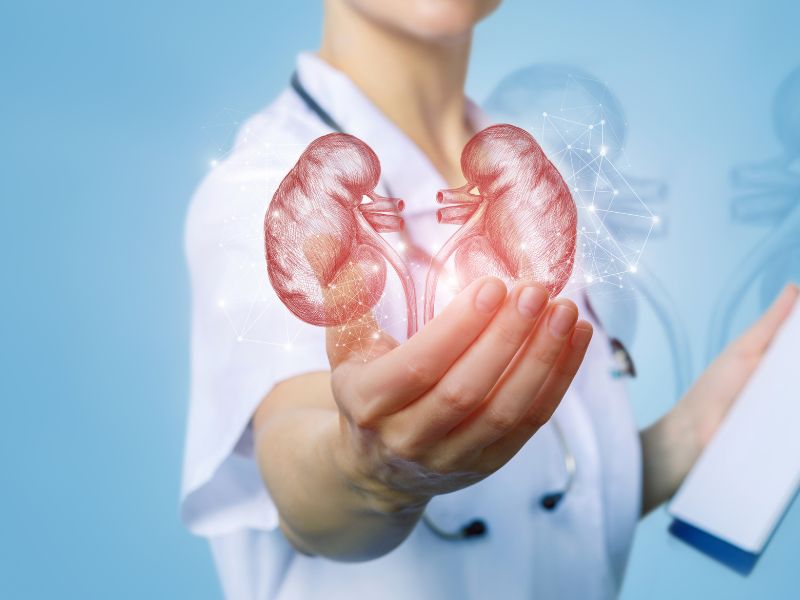If you’re managing diabetes, there’s one organ you might not be thinking about, but absolutely should be: your kidneys.
That’s because diabetic kidney disease, also called diabetic nephropathy, is one of the most serious long-term complications of diabetes, affecting roughly 1 in 3 adults with the condition. It’s also preventable and manageable with the right care.
Understanding Diabetic Kidney Disease
Think of your kidneys as your body’s natural filtration system. They remove waste, excess fluids, and toxins from your blood and help keep your electrolytes in balance. When blood sugar stays high for long periods, it can damage the small blood vessels in your kidneys, making it harder for them to do their job. Over time, this damage can lead to kidney failure if left untreated.
While anyone with diabetes is at risk, several factors increase your chances of developing diabetic kidney disease. The biggest risk factor is poor blood sugar control; the longer your blood sugar stays elevated, the more damage accumulates in your kidneys. Other factors include high blood pressure, tobacco use, obesity, and family history.
How It Differs from Other Kidney Disease
While chronic kidney disease can have many causes – including high blood pressure, genetic conditions, or infections – diabetic kidney disease has a specific origin: prolonged high blood sugar levels. The damage pattern is also unique, typically affecting both kidneys equally and progressing through predictable stages.
Unlike some other forms of kidney disease that might develop suddenly, diabetic kidney disease usually takes years to develop, giving you time to take preventive action when caught early. This makes regular monitoring through blood and urine tests crucial for anyone living with diabetes.
Warning Signs to Watch For
Early diabetic kidney disease often has no symptoms, which is why regular testing is so important. As the condition progresses, you might notice:
- Swelling in your hands, feet, or face
- Foamy or bubbly urine
- More frequent urination, especially at night
- Fatigue and weakness
- Nausea or poor appetite
- Difficulty concentrating
Prevention and Management
Diabetic kidney disease is largely preventable and manageable with the right approach:
Maintain tight blood sugar control through consistent monitoring, medication compliance, and healthy lifestyle choices.
Manage blood pressure aggressively, as this significantly slows kidney damage progression.
Regular screening with kidney function tests helps catch problems early when they’re most treatable.
Stay active and eat well to support overall health and blood sugar management.
Stay One Step Ahead
Managing diabetes requires consistent monitoring and the right supplies. Our diabetes testing program makes it easy to keep track of your blood sugar levels with reliable testing supplies delivered directly to your home. Stay on top of your diabetes management and protect your kidneys—browse our diabetes supplies today for convenient, dependable support in your health journey.

